
Even though depression per se was not recognized as a childhood disease before 1980s, nowadays it is and it can be seen in many different individuals, including toddlers. In fact about 5% of the world population, including children is suffering from a clinical case of depression.
What Is Depression
However, this does not mean that your child is depressed whenever he/she is sad. Rather, depression is to be understood as a state of body and mind which is not periodical or temporary. Thus, it can last for weeks and months without cessation, throwing your child into the bottomless pit of desperation, sorrow, hopelessness and lack of energy along with enthusiasm. Note that, when left untreated, this phase may last for years, even though these cases are rare.
Signs of Childhood Depression
The first signs of this form of depression are the facts that your child does not enjoy playing and cries often. Additionally, he/she can be irritable, nervous, angry, defiant or prone to extreme mood swings.
Depressed children do not get on well with other children, refusing to play and spend time with them. Also, they might have troubles concentrating, eating and sleeping. Depression in this age may manifest through headaches, lack of interest and lack of energy. If your child is older, like in his/her preschool years, he/she may show signs of depression through low self-esteem, constant feelings of guilt and a sense of hopelessness and helplessness.
Depression in children usually goes hand-in-hand with conditions such as anxiety, ADD, conduct disorders, substance abuse problems or eating disorders.
Reasons behind Childhood Depression
Whenever some of the above mentioned symptoms remain present for a week or more, seek professional help, since these are no longer childhood fits which can be neglected, but, rather, signs of a more serious problem which needs to be treated timely.
As for the causes of childhood depression, some experts claim that a imbalance in the brain chemistry may lead to this condition, due to dysfunctional brain. For this to be true, a medical family history of depression needs to be present. In fact, if both of the parents have depression in running in their families, chances of their child being affected by it are up to 75% higher.
Sometimes, traumatic events such as abandonment, shocks, problems at school, parent divorce, sexual or emotional abuse at home or in school or any such experiences can lead to depression.
Childhood Depression Treatment
Childhood depression is treated through various therapies, including counseling with both the child and the parents. Play therapy usually works with younger individuals while medications may need to be prescribed if this approach fails to be efficient.
Also, finding a good childhood depression specialist is crucial, so make sure you do your research well.


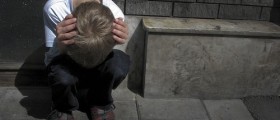



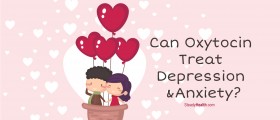


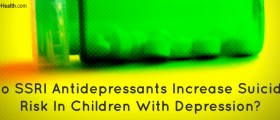
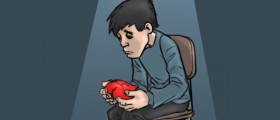




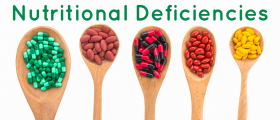

Your thoughts on this
Loading...